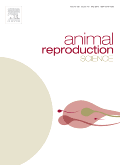
ANIMAL REPRODUCTION SCIENCE
Scope & Guideline
Exploring the Science Behind Animal Reproduction
Introduction
Aims and Scopes
- Reproductive Physiology and Endocrinology:
Research focusing on the hormonal regulation and physiological mechanisms underlying reproduction in various species, including cattle, sheep, pigs, and other livestock. - Assisted Reproductive Technologies (ART):
Studies on the application and optimization of ART methods such as artificial insemination, in vitro fertilization, and embryo transfer, aimed at improving reproductive efficiency. - Embryo Development and Quality:
Investigations into the factors influencing embryo quality, development, and viability, including cryopreservation techniques and environmental impacts. - Genetics and Genomics in Reproduction:
Research examining genetic factors affecting reproductive traits, including molecular markers, epigenetics, and genetic selection in livestock. - Nutrition and Metabolism in Reproductive Health:
Studies exploring the impact of nutritional strategies on reproductive performance and health, including maternal nutrition and its effects on offspring. - Microbiome and Reproductive Health:
Research into the role of microbiota in reproductive health, including studies on semen microbiota and its influence on fertility. - Animal Welfare and Reproductive Management:
Exploration of management practices that enhance animal welfare and reproductive outcomes in agricultural settings.
Trending and Emerging
- Sperm Quality and Cryopreservation Technologies:
An increased focus on optimizing cryopreservation techniques and improving sperm quality parameters, reflecting the ongoing need for effective reproductive management in livestock. - Environmental Impacts on Reproductive Performance:
Research examining how environmental stressors, such as temperature and nutrition, affect reproductive outcomes, indicating a growing concern for climate change effects on agriculture. - Epigenetics and Reproductive Health:
Emerging studies on epigenetic modifications and their impact on reproductive traits and outcomes, highlighting the importance of gene-environment interactions. - Innovations in Fertility Assessment Techniques:
Advancements in imaging and diagnostic technologies for assessing reproductive health and fertility, reflecting the integration of technology into reproductive science. - Microbiome Research in Reproduction:
Growing interest in the role of the microbiome in fertility and reproductive health, revealing new avenues for understanding and enhancing reproductive success.
Declining or Waning
- Traditional Breeding Practices:
Research on conventional breeding methods has decreased as newer reproductive technologies and genetic selection strategies gain prominence. - Basic Reproductive Anatomy Studies:
The focus on descriptive studies of reproductive anatomy has waned, with a shift towards functional and applied research emphasizing reproductive physiology and endocrinology. - Non-scientific Approaches to Reproductive Management:
There is a noticeable decline in studies that do not employ rigorous scientific methodologies, as the journal emphasizes evidence-based research. - Limited Species Scope:
Research focusing exclusively on a narrow range of species is declining, as there is a growing interest in comparative studies across multiple species for broader insights.
Similar Journals
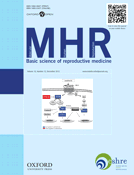
MOLECULAR HUMAN REPRODUCTION
Advancing Insights into Reproductive BiologyMOLECULAR HUMAN REPRODUCTION, published by Oxford University Press, is a pivotal journal dedicated to advancing the field of reproductive biology. Since its inception in 1995, the journal has been recognized for its rigorous peer-reviewed research and substantial contributions to the understanding of molecular mechanisms underlying human reproduction. With an impressive impact factor and ranked within the top tiers (Q1 and Q2) across diverse categories including Embryology, Obstetrics and Gynecology, and Reproductive Medicine, it stands as an essential resource for researchers, healthcare professionals, and students alike. The journal aims to publish cutting-edge research that explores the complexities of human reproduction at the molecular and cellular levels, fostering a deeper understanding that can be translated into clinical practice. Although it currently operates under a subscription model, the valuable insights and groundbreaking findings featured within its pages continue to influence the trajectory of reproductive health research globally. Located in the heart of Oxford, United Kingdom, the journal remains committed to addressing vital challenges in the field and promoting innovative scientific dialogue.
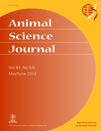
ANIMAL SCIENCE JOURNAL
Elevating Knowledge in Food Science and Animal WelfareAnimal Science Journal, published by Wiley, stands as a premier platform for advancing knowledge in the fields of Agricultural and Biological Sciences, Animal Science and Zoology, and Food Science. With an ISSN of 1344-3941 and an E-ISSN of 1740-0929, this journal not only enjoys a commendable Q2 ranking across multiple categories, reflecting its significance and impact within the academic community, but it also ranks within the top percentiles in terms of Scopus rankings. Operating out of the United Kingdom, the journal covers a broad spectrum of research topics relevant to animal science, encompassing both theoretical insights and practical applications. While it is not an open access journal, it remains an essential resource for researchers and practitioners eager to enhance their understanding of animal sciences, contribute to ongoing debates, and stay abreast of the latest findings from 2003 through 2024. Scholar engagement and innovative research are central to the journal’s objectives, making it an invaluable asset for students, professionals, and academics alike.
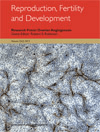
REPRODUCTION FERTILITY AND DEVELOPMENT
Pioneering insights into the complexities of reproduction and growth.Reproduction, Fertility and Development, published by CSIRO Publishing, is a prestigious journal that has been at the forefront of research in the fields of reproductive science, developmental biology, and related disciplines since its inception in 1989. With an ISSN of 1031-3613 and an E-ISSN of 1448-5990, this journal serves as a vital platform for disseminating innovative findings and methodologies that advance our understanding of reproductive processes and development in a variety of organisms. The journal is indexed in prominent databases, exhibiting a solid standing with a Q3 quartile ranking in both Animal Science and Zoology and Biotechnology, and covering 2023 rankings in multiple related categories. Operating from Australia, Reproduction, Fertility and Development embraces a commitment to enriching scholarly communication and fostering collaborative research efforts. Its focus on high-quality, peer-reviewed articles makes it an essential resource for researchers, professionals, and students seeking to stay abreast of the latest advancements and pivotal discussions in reproductive medicine and developmental biology.
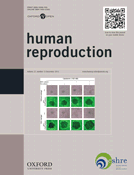
HUMAN REPRODUCTION
Connecting researchers and practitioners for impactful discoveries.HUMAN REPRODUCTION is a prestigious academic journal published by Oxford University Press, dedicated to advancing the field of reproductive medicine. With an impressive impact factor highlighting its significance, the journal ranks in the top quartile (Q1) for Obstetrics and Gynecology, Rehabilitation, and Reproductive Medicine, showcasing its crucial role in disseminating high-quality research. Founded in 1986, it has become a key resource for researchers, practitioners, and students interested in cutting-edge developments and innovative practices in human reproduction. Despite not currently offering open access, the journal continues to publish a wealth of peer-reviewed articles that contribute substantially to clinical knowledge and practice. With Scopus rankings placing it among the top journals in its categories, HUMAN REPRODUCTION remains an essential platform for discussion and dissemination of vital findings impacting reproductive health globally.

Reproductive Medicine
Unlocking Innovations in Fertility and WellnessReproductive Medicine is an esteemed open-access journal published by MDPI, focusing on the latest research and advances in reproductive health, fertility, and assisted reproductive technologies. With its E-ISSN of 2673-3897, the journal aims to provide a platform for researchers, clinicians, and healthcare professionals to disseminate their findings, share innovative practices, and engage in scholarly discourse. Situated in Basel, Switzerland, Reproductive Medicine emphasizes a multidisciplinary approach, exploring biological, clinical, and psychological aspects of reproductive health. Although the journal is in the early stages of establishing metrics such as H-index and Scopus rankings, its open-access model enhances accessibility, allowing for a broad dissemination of knowledge. Committed to fostering advancements in the field, Reproductive Medicine is essential for those seeking to stay at the forefront of reproductive health research.

Reproductive Biology and Endocrinology
Driving Discoveries in Endocrine Mechanisms and Reproductive HealthReproductive Biology and Endocrinology, published by BMC, is a distinguished open-access journal established in 2003, catering to researchers and professionals in the interdisciplinary fields of reproductive biology, endocrinology, and related biomedical sciences. With a notable impact in 2023, the journal has achieved Q1 rankings in Obstetrics and Gynecology, Reproductive Medicine, and Endocrinology, alongside a Q2 ranking in Developmental Biology, establishing itself as a pivotal source of high-quality research and insights. The journal's commitment to freely accessible research promotes knowledge dissemination across its domains, which is crucial for advancing understanding of reproductive health and endocrine mechanisms. With a robust Scopus ranking showcasing its relevance—17th out of 209 in Obstetrics and Gynecology, and 8th out of 90 in Reproductive Medicine—it serves as an essential resource for academics and clinicians alike, facilitating innovative research and fostering collaboration within the global scientific community.
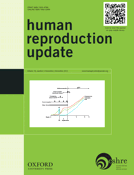
HUMAN REPRODUCTION UPDATE
Shaping the Future of Reproductive MedicineHUMAN REPRODUCTION UPDATE, published by Oxford University Press, stands as a leading journal in the fields of Obstetrics and Gynecology and Reproductive Medicine. With an impressive Q1 ranking in both categories according to the 2023 category quartiles and a significant Scopus rank, it is recognized as one of the top journals globally in these disciplines, catering to the most relevant and cutting-edge research. The journal has been a crucial platform for disseminating vital findings and reviews from 1995 to 2024, contributing to advancements in human reproductive health. With its focus on publishing high-quality, peer-reviewed articles, it serves as an essential resource for researchers, healthcare professionals, and students seeking the latest insights and developments in reproductive science. As the journal aims to foster informed discussions and encourage further research, it remains committed to shaping the future of reproductive health and medicine.
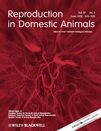
REPRODUCTION IN DOMESTIC ANIMALS
Unraveling the Mysteries of Animal ReproductionREPRODUCTION IN DOMESTIC ANIMALS is a distinguished peer-reviewed journal published by Wiley that has been at the forefront of advancing knowledge in the field of animal science since its inception in 1966. With an ISSN of 0936-6768 and an E-ISSN of 1439-0531, this journal specializes in the intricate aspects of reproductive biology in domestic species, supporting both scientific research and practical applications in agriculture. Ranked Q2 in Animal Science and Zoology and Q3 in both Biotechnology and Endocrinology, the journal plays a crucial role in addressing contemporary challenges in animal reproduction, contributing significant insights to researchers, professionals, and students alike. Although it does not currently offer open access, its editorial team is committed to publishing high-quality studies that enhance our understanding of reproductive mechanisms and foster advancements in the field. The convergence of data, innovative methodologies, and practical implications in the journal fosters a rich dialogue among scientists and practitioners worldwide, making it an essential resource for anyone invested in animal reproductive health.

Reproduction and Fertility
Connecting knowledge with clinical practice.Reproduction and Fertility is a premier academic journal published by BIOSCIENTIFICA LTD, dedicated to advancing knowledge in the fields of reproductive sciences, obstetrics, gynecology, and related areas. Established with a focus on delivering high-quality research, this journal has quickly ascended in prominence, achieving a commendable Q2 ranking in multiple categories, including Embryology, Obstetrics and Gynecology, Reproductive Medicine, and Urology, as of 2023. With an E-ISSN of 2633-8386, Reproduction and Fertility aims to provide a valuable platform for researchers, professionals, and students alike, offering insights into the latest discoveries and innovations in reproductive health. Although currently not an open-access journal, it remains committed to disseminating important findings that can influence clinical practices and policy-making worldwide. Operating from its headquarters in Bristol, United Kingdom, the journal serves as an essential resource for anyone invested in understanding and improving reproductive health outcomes through rigorous academic research.
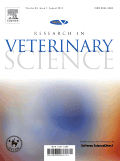
RESEARCH IN VETERINARY SCIENCE
Unveiling Insights for Veterinary ExcellenceRESEARCH IN VETERINARY SCIENCE, published by Elsevier Science Ltd, stands as an authoritative platform in the field of veterinary studies. With its origins dating back to 1965, this prestigious journal is recognized for its contribution to the advancement of veterinary knowledge and practices, boasting a remarkable Q1 categorization in Veterinary (miscellaneous) and ranking 24th out of 194 in the Scopus veterinary general category, placing it in the top 13% of its field. The journal presents a diverse range of research articles that explore critical topics in veterinary science, thereby facilitating evidence-based practices and innovations. Although currently not an open-access journal, it remains highly accessible through institutional and personal subscriptions, allowing researchers, professionals, and students to benefit from its rich collection of studies. As it moves toward 2024, RESEARCH IN VETERINARY SCIENCE continues to be a vital resource for those dedicated to improving animal health and advancing veterinary science.